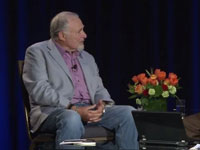The Benefits of Belonging
Julie L. Martin, Duke University, presented her research on “The Benefits of Belonging: State Belonging and Motivation for Social Reconnection Following Rejection” at the 2014 APS Annual Convention in San Francisco. Martin received a 2014 APSSC Student Research Award for this work.
According to the Social Reconnection Hypothesis, social exclusion increases the motivation to forge new social bonds in an effort to restore belonging. While this hypothesis might lead one to think that the desire to affiliate increases in proportion to how much belonging decreases, it is also possible that the desire to avoid further rejection may override social reconnection goals once belonging becomes too low.
In the current study, we experimentally tested this hypothesis by manipulating belonging (low/high belonging prime) and rejection (rejected versus not rejected). Within the no-rejection condition, low-belonging participants showed greater motivation to work with others than high-belonging participants. However, low belonging participants’ desire to work with others decreased following rejection, while high belonging participants’ desire to work with others increased. Furthermore, low-belonging participants who experienced rejection rated neutral-expression faces as significantly more hostile than low-belonging participants who weren’t rejected, suggesting an increased vigilance to social threat.
Together, these findings suggest that low state belonging motivates social connection, but only up to a point. They also suggest that belonging serves as a resource in the face of rejection, allowing people to pursue their social reconnection goals over their self-protection goals.
-Julie L. Martin
Duke University





APS regularly opens certain online articles for discussion on our website. Effective February 2021, you must be a logged-in APS member to post comments. By posting a comment, you agree to our Community Guidelines and the display of your profile information, including your name and affiliation. Any opinions, findings, conclusions, or recommendations present in article comments are those of the writers and do not necessarily reflect the views of APS or the article’s author. For more information, please see our Community Guidelines.
Please login with your APS account to comment.